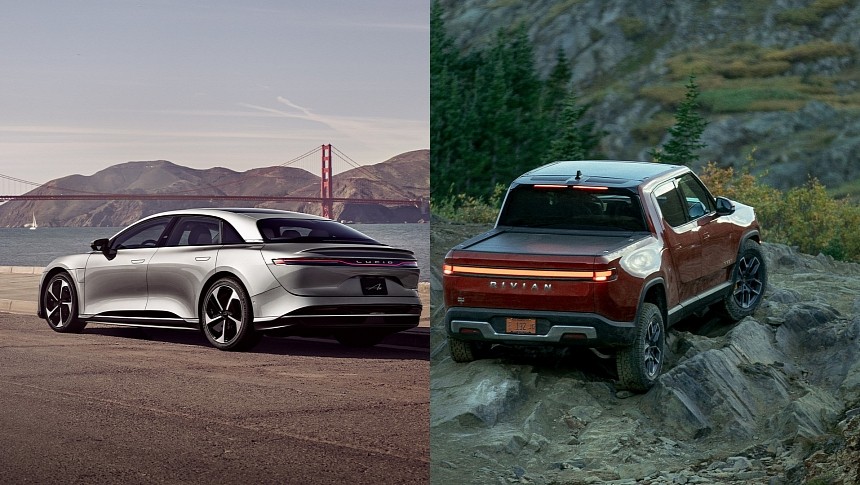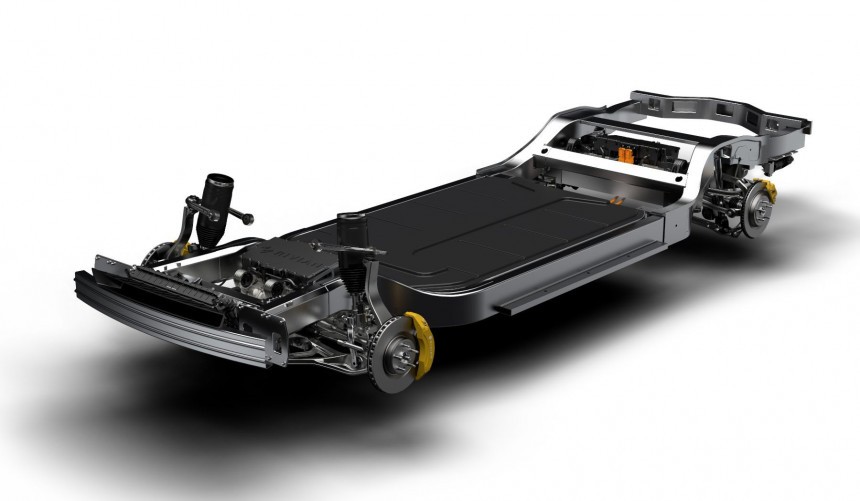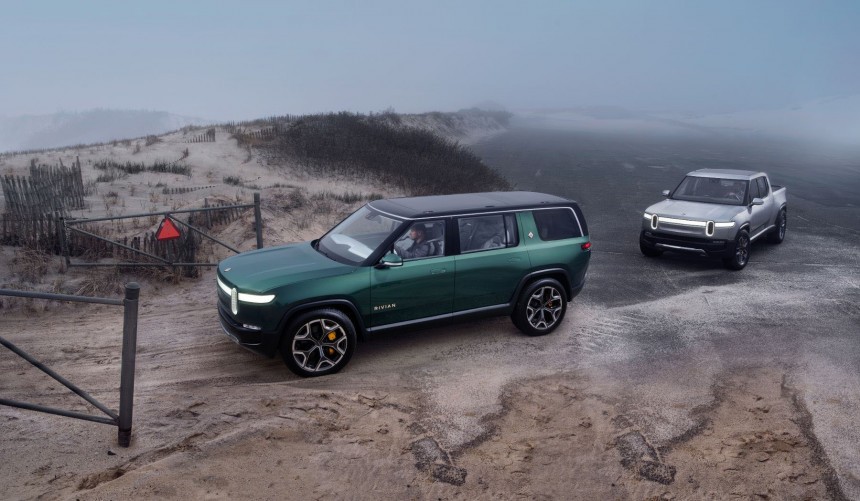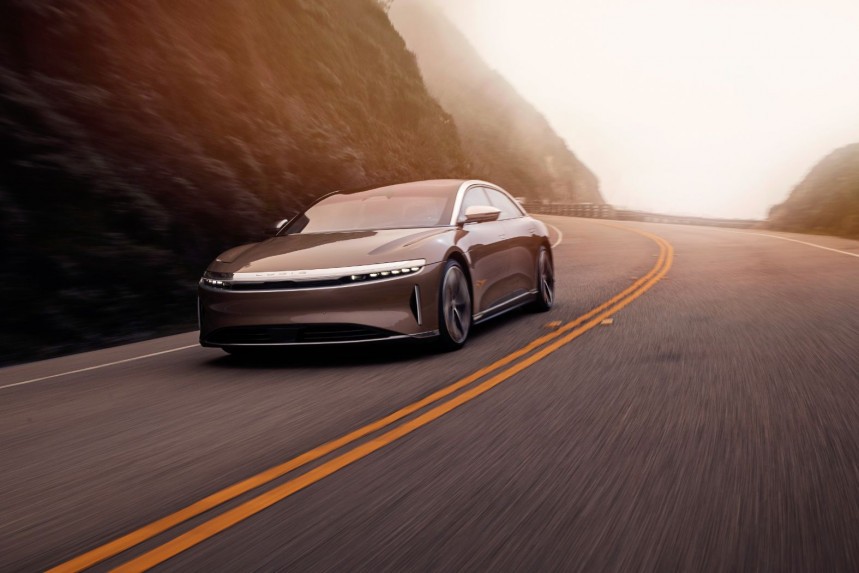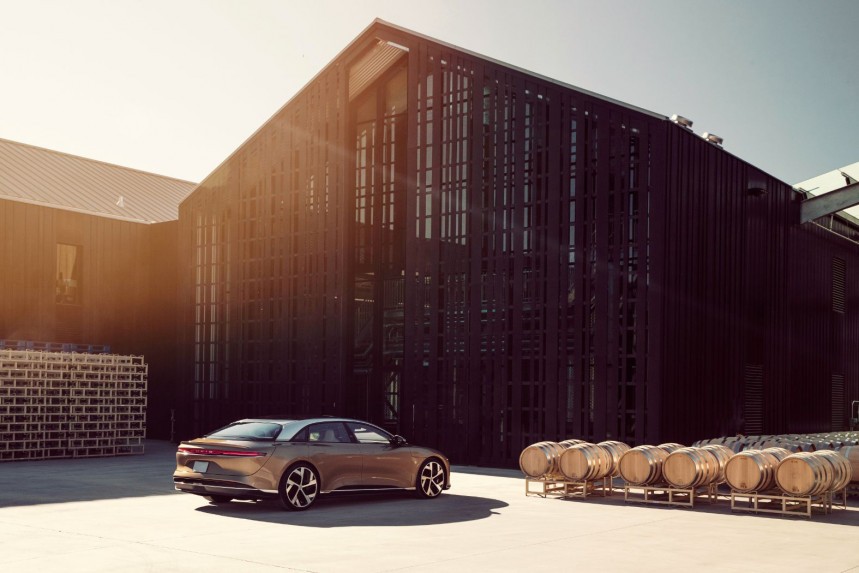It is increasingly clearer that most of the BEV startups we have seen in the last few years will not survive. They emerged in a moment of easy money when a bull market stimulated investors to look for the next Tesla. When war, inflation, and other dire conditions made these investors disappear, what was left were several companies struggling to make a profit without even having a product to sell. The exceptions are Lucid and Rivian.
Unlike most other BEV startups, these two managed to present convincing products while investors were still around, even if they are not meeting the production targets they previously had. To be fair, most automakers are facing similar difficulties due to financing restrictions for new cars. Lucid and Rivian also benefit from something that sets these two startups apart from all others in the automotive industry: both have a financial backup that others do not enjoy.
Just check what most startups did: they presented prototypes or even only plans for new BEVs, how they were supposed to get there and started inviting investors to join. They would eventually go public through a Special Purpose Acquisition Company (SPAC) and could even present higher valuations than legacy carmakers with solid businesses. It was a surreal landscape that showed some BEV makers relied more on what they promised for their market caps than on what they actually delivered. Some of these distortions have already been corrected; some still persist.
The corrections led some of these companies closer to disappearing. That’s Lordstown Motors’ case. Its only product is the Endurance, a pickup truck that caught fire in its first external test while it was still only a mule (used the body of another vehicle to evaluate its components). The company said it had thousands of reservations, but Hindenburg Research debunked that. Ever since, its first CEO resigned, the company gave up on selling the pickup truck to final customers and Foxconn bought its factory. The latest news from it was a recall and that it achieved a lousy EPA range (only 174 miles for a 109-kWh battery pack).
Another example of a struggling startup is Faraday Future. From a company that would invest $1 billion in a factory in Nevada, it became a brand that will have its first vehicle – the FF91 – produced in a smaller facility in Hanford, California. The BEV costs $309,000, which is quite a bet for a company that never sold anything. Canoo was conceived not to sell its vehicles: it would offer mobility as a service, in a similar business model that is still fundamental to Riversimple. Ultimately, it is selling its electric MPVs to fleets and trying to fund itself in all possible ways.
Rivian is also having a hard time, but it is in a more comfortable position. Amazon and Ford have helped it raise a fortune. It had $18.423 billion in end cash position by the end of 2021 and dropped that amount to $12.099 billion by the end of 2022, which shows it is burning money fast. The BEV maker’s excuse is that it is investing in a new factory in Georgia and also developing new, more affordable vehicles. The R2 family has a higher production volume potential than the R1 family currently for sale. Apart from the investments it made in Rivian, Amazon also bought 100,000 electric vans from the company. Rivian didn’t even manage to manufacture all of them yet. It is very unlikely that this BEV maker will fail with such a financial backup.
The same thing happens with Lucid. Its main stockholder is Saudi Arabia's Public Investment Fund (PIF), which recently gave the company $1.8 billion more. That capital raise effort wants to give Lucid $3 billion more in cash, but PIF made sure 60% of that plan is already covered. Before the capital raise, Lucid had $3.4 billion in cash and $700 million in available credit lines.
This BEV startup already has two factories in the US and should open one more in Saudi Arabia. Lucid is also about to expand its lineup with another vehicle, the Gravity. This electric SUV is the vehicle that Lucid expects to present more sales right now. In a not so distant future, that mission will be up to another one of its four new models: a smaller sedan, a smaller SUV, a coupe, and a pickup truck. The smaller SUV should be the company’s best-seller vehicle, just like the Model Y’s current role at Tesla. If everything goes according to the plan, all six Lucids should be on the market by 2030.
Saudi Arabia’s factory already has a market. The country’s government said it will buy 100,000 vehicles from the BEV maker until 2032, either produced in the Saudi Arabian factory or in the US. While Saudi Arabia wants to have its own BEV maker, Lucid will not have to worry about money, even if its shares drop to the point that it makes more sense for PIF to take it private. Oil sales make sure the fund has enough money to spend wherever it wants.
Apart from Rivian and Lucid, the only BEV startup with more chances of succeeding is VinFast. Although its vehicles have already been thrashed by automotive writers in recent evaluations, the company is funded by the largest Vietnamese conglomerate. It will only fail if Vingroup faces financial difficulties.
When we talk about BEV startups, we should bear in mind that this definition gathers together very different companies. Some saw an opportunity to make money in the stock market with electric cars. Some really wanted to focus on vehicles, but lacked the technical skills and the luck some others had. Finally, a handful had powerful investors to support their efforts. Rivian and Lucid are in this category. Remember that not to be fooled by what their stock prices may suggest.
Just check what most startups did: they presented prototypes or even only plans for new BEVs, how they were supposed to get there and started inviting investors to join. They would eventually go public through a Special Purpose Acquisition Company (SPAC) and could even present higher valuations than legacy carmakers with solid businesses. It was a surreal landscape that showed some BEV makers relied more on what they promised for their market caps than on what they actually delivered. Some of these distortions have already been corrected; some still persist.
Another example of a struggling startup is Faraday Future. From a company that would invest $1 billion in a factory in Nevada, it became a brand that will have its first vehicle – the FF91 – produced in a smaller facility in Hanford, California. The BEV costs $309,000, which is quite a bet for a company that never sold anything. Canoo was conceived not to sell its vehicles: it would offer mobility as a service, in a similar business model that is still fundamental to Riversimple. Ultimately, it is selling its electric MPVs to fleets and trying to fund itself in all possible ways.
The same thing happens with Lucid. Its main stockholder is Saudi Arabia's Public Investment Fund (PIF), which recently gave the company $1.8 billion more. That capital raise effort wants to give Lucid $3 billion more in cash, but PIF made sure 60% of that plan is already covered. Before the capital raise, Lucid had $3.4 billion in cash and $700 million in available credit lines.
Saudi Arabia’s factory already has a market. The country’s government said it will buy 100,000 vehicles from the BEV maker until 2032, either produced in the Saudi Arabian factory or in the US. While Saudi Arabia wants to have its own BEV maker, Lucid will not have to worry about money, even if its shares drop to the point that it makes more sense for PIF to take it private. Oil sales make sure the fund has enough money to spend wherever it wants.
When we talk about BEV startups, we should bear in mind that this definition gathers together very different companies. Some saw an opportunity to make money in the stock market with electric cars. Some really wanted to focus on vehicles, but lacked the technical skills and the luck some others had. Finally, a handful had powerful investors to support their efforts. Rivian and Lucid are in this category. Remember that not to be fooled by what their stock prices may suggest.
